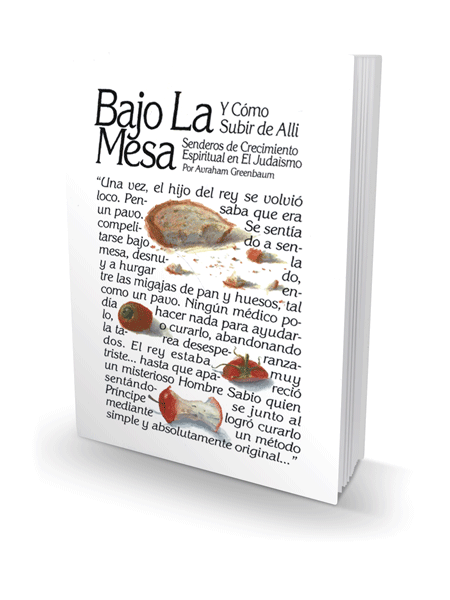
Idealized or Idolized
Unconsciously, the boy knew that his father and his mother were really not as all-powerful and all mercifully kind as he had fantasized them to be...

It’s human nature to idealize others. Idealization of a positive healthy role model can definitely enhance our growth – but sometimes it can get us into trouble.
When we see good and admirable characteristics in others that we wish to emulate and adopt, we are using idealization in the right way. We can imagine being more like that person in certain ways and even if we are not there yet completely, we develop our own idealized self which spurs us on to do better and strive for more growth and achievement.
It’s when idealization turns into idolization that trouble occurs. Once this happens, we become emotionally and spiritually at risk. The idolized person falls from grace, and we become hurt, angered, and arrested in our development.
A young boy idealized his father because he was a Hatzala volunteer (an emergency medical assistant). The boy grew up watching his father rushing out, even on Shabbat, to “save people’s lives.” The boy attributed a  great power of salvation to his father, who came home from the emergency calls with dramatic stories about helping someone in pain or helping someone who couldn’t breathe to breath, or helping someone who needed to get to the hospital just in time.
great power of salvation to his father, who came home from the emergency calls with dramatic stories about helping someone in pain or helping someone who couldn’t breathe to breath, or helping someone who needed to get to the hospital just in time.
This larger-than-life persona that the boy attributed to his father made the boy feel very safe in his father’s presence. The boy fantasized that his father was his powerful savior, provider and protector. This is what normally developing children feel towards a parent.
So how do things go array? Let’s go back to our example.
In the case of this boy, there were other things happening in his life that were creating real fear in him. Without his parent’s awareness, the boy was being mercilessly teased and tormented by a local bully who was subjecting him to severe daily verbal and physical abuse. Despite his idealized image of his father, the boy never told his father or his mother about the abuse which actually lasted for years – even to this day (he’s in his thirties), his parents don’t know what happened to him.
Why not?
Because unconsciously the boy knew that his father and his mother were really not as all-powerful and all mercifully kind as he had fantasized them to be. The boy feared that his father would not react well to hearing about his abuse. He also feared that either his father would not believe him or that his father would act passively and be afraid himself to confront the situation.
The following vignette is from a therapy session that occurred many years later after the boy was married and became a partner in his father’s business. Please note that the client is at a very advanced stage in his therapy.
Client: “Today we discovered that one of our employees has been stealing from us and my father said that he couldn’t believe that such a nice guy could do such things. It made me livid…” [unconsciously the client thought that his father was saying that his own childhood abuser was a “nice guy”].
Therapist: “Speak to you father now. Tell him how you’re feeling.”
Client: “Dad, what’s wrong with you. This guy has been looking you in the face and stealing thousands of dollars from you. He’s abusing you, Dad! – and you want to rehabilitate him?” I can’t stand you, Dad. What kind of partner are you. I can’t trust your judgment. You cause me so much pain. I don’t feel protected by you anymore. I sometimes wish you didn’t exist. If I didn’t have a father I wouldn’t have to live in such pain. If you were dead, my dream that you’ll rescue me will be gone but my expectations of you and my pain will also be gone.
Therapist: “OK, now speak to the “dead” father.”
Client: “Dad, I know that you’re in Heaven because you were essentially a good man. You brought me up and provided for me. You ultimately made me a partner in your business and taught me many things. But I’m glad that you’re gone because I just couldn’t live with your moods, your criticisms, and your passivity. Dad, I never told you, but I was viciously abused growing up. Remember that neighbor down the street? Well he was abusing me right under your nose!”
“Just give to your father! He’s 80 years old! Don’t expect anything from him anymore…not physical protection…not emotional protection…not security…nothing! Doesn’t he deserve a little nachas (fatherly pride) from you at his age?
Therapist: “Who are you speaking to now?”
Client: “I’m speaking to the ‘black and white, all or nothing’ part of myself. I am speaking now as my healthy grown up self who is speaking to my ‘black and white, all or nothing self,’ the part of me that needs to see my father as either ‘all good’ or ‘all bad’ as either a devil or a saint – but not human…not a man who like all men is a mixture of strength and weakness.”
Therapist: “And what does your ‘black and white self’ say back to you?”
Client: “It says: ‘you won’t be able to manage a balance of your loving and hateful feelings towards your father. If your father is alive and you trust him again, and you start giving to him again, then you’re going to get hurt…he’s going to burn you…if he is dead, you will have lost your ‘security’ but at least you’ll be out of this conflict…’”
“Wow, I never thought that I had the right to say these things. I guess it’s a sign of my growth that I can talk about both sides of my conflict.”
By speaking about the so called “negative” aspects of his father and coming to understand the futility of idolizing his father, the client is healing from his pathological split and becoming more whole. He can now relate to his father and others in his life in a more balanced way. He doesn’t expect as much from people and is no longer devastated by their imperfections. This has given him new faith that he is capable of intimacy with his wife and others.
This is a true story. The details have been altered to protect the privacy of those involved.










Tell us what you think!
Thank you for your comment!
It will be published after approval by the Editor.